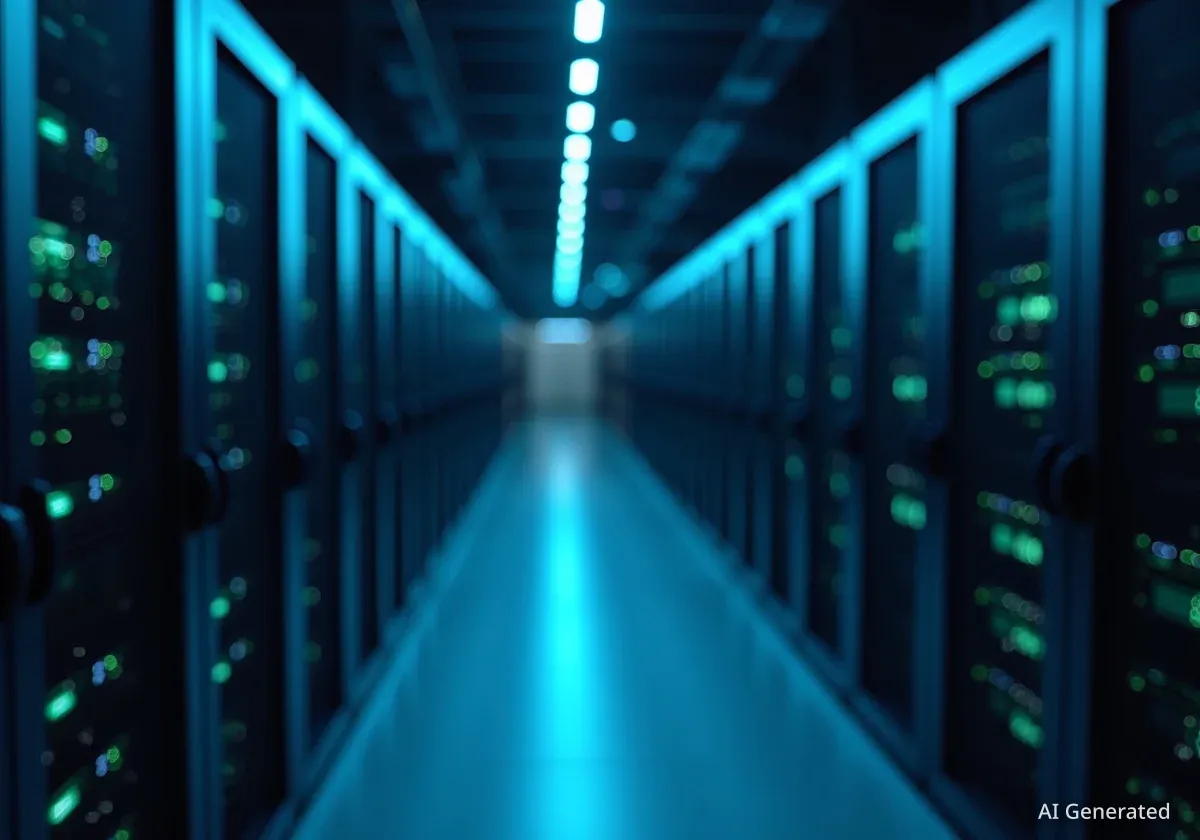Contrary to the widespread narrative of an artificial intelligence-fueled economic boom, a recent study indicates that investors, particularly in the bond market, are becoming more cautious about AI's transformative potential. Major AI model releases in 2023 and 2024 have coincided with market behavior that suggests lowered expectations for future economic growth.
This growing skepticism supports the strategy of companies like Apple, which have opted for a more deliberate approach to integrating AI, prioritizing product refinement over speed. The market data suggests that a "wait and see" strategy may be more aligned with the technology's actual, rather than hyped, impact on the economy.
Key Takeaways
- A new study found that major AI model releases correlated with a drop in long-term interest rates, signaling reduced investor confidence in future GDP growth.
- This trend suggests investors are becoming more pessimistic about AI's broad economic impact with each new model release.
- Companies like Apple are pursuing a cautious AI strategy, waiting for the technology to mature, a move that this market sentiment appears to validate.
- A separate MIT report found 95% of businesses using AI have seen no significant impact on their profits, reinforcing the gap between hype and reality.
Bond Market Signals Caution on AI
A study titled “Do Markets Believe in Transformative AI?” has uncovered a surprising trend in financial markets. Researchers analyzed the bond market's reaction to new model releases from five leading AI platforms, including OpenAI, Anthropic, and Google DeepMind, throughout 2023 and 2024.
On the days these advanced AI models were announced, long-term interest rates consistently fell. This reaction is significant because lower long-term rates often indicate that investors are collectively forecasting slower economic growth in the future. Instead of boosting confidence, each major AI release appeared to temper economic expectations.
Why Interest Rates Matter
In financial markets, long-term interest rates, or bond yields, reflect expectations about future inflation and economic growth. When investors anticipate strong growth, they typically demand higher interest rates to compensate for inflation. Conversely, falling rates suggest an expectation of more modest growth and lower inflation.
The researchers noted that the timing of these AI releases was random, making it unlikely that other economic events were responsible for the consistent drop in rates. The most plausible explanation, according to the study, is that bond market participants grew more pessimistic about AI's ability to significantly accelerate GDP growth as they observed the technology's evolution.
From Hype to Incremental Progress
This pattern of investor sentiment predates the more public disappointment surrounding recent AI updates. For example, the release of ChatGPT 5.0 was met with analysis suggesting it offered only incremental improvements over its predecessor, and in some areas, performed worse. This led to questions about whether the era of exponential AI progress was slowing.
The study's findings suggest that this sense of tempered expectations was already present in the market long before the ChatGPT 5.0 release. It indicates that investors may believe the challenges and limitations of current AI are more fundamental to the technology itself, rather than specific to any single version or update.
It is important to clarify that this does not mean investors believe AI will cause an economic contraction. Rather, it suggests that their optimism regarding a massive, AI-driven economic boom has waned considerably since the beginning of 2023.
The Prudence of a Slow-Adoption Strategy
The market's cautious outlook lends credibility to companies that have chosen not to rush their AI implementation. Apple is a prominent example of this deliberate strategy. The company is known for its meticulous focus on product quality and user experience, standards that current generative AI technologies often struggle to meet consistently.
Gautam Mukunda of the Yale School of Management commented on this approach in a recent interview.
“Apple has this fanatical commitment to everything being perfect. And it is very clear that the current generative-AI technologies cannot achieve that. So maybe Apple is doing what it’s always doing. It’s being distinctive. It’s cutting against the grain. It’s saying, when this stuff is ready, we will be there. But not before.”
This perspective suggests that for some companies, maintaining brand integrity and product quality is more valuable than being the first to market with an imperfect technology. The bond market's reaction indicates that investors may not be penalizing such caution.
Disappointing Profits and a Widening Gap
The skepticism seen in financial markets is mirrored by data on corporate performance. A recent report from MIT’s NANDA initiative delivered a striking statistic on the real-world business impact of artificial intelligence.
The MIT study found that 95% of enterprise organizations using AI applications reported no material impact on their profits. This highlights a significant disconnect between the perceived potential of AI and its current ability to generate tangible financial returns for most businesses.
This does not mean AI cannot be transformative for specific companies or industries. It is possible that AI will enable a select group of firms to dramatically increase efficiency, potentially by reducing their workforce. For these individual companies, growth could indeed be exponential.
However, this scenario presents a broader economic concern. If AI primarily boosts the profitability of a few companies by displacing labor, it could exacerbate economic inequality. Such a concentration of wealth could, in turn, lead to weaker overall consumer demand and more anemic growth for the economy as a whole. The bond market's behavior may be an early signal that investors are beginning to price in this more complex and less optimistic future.





